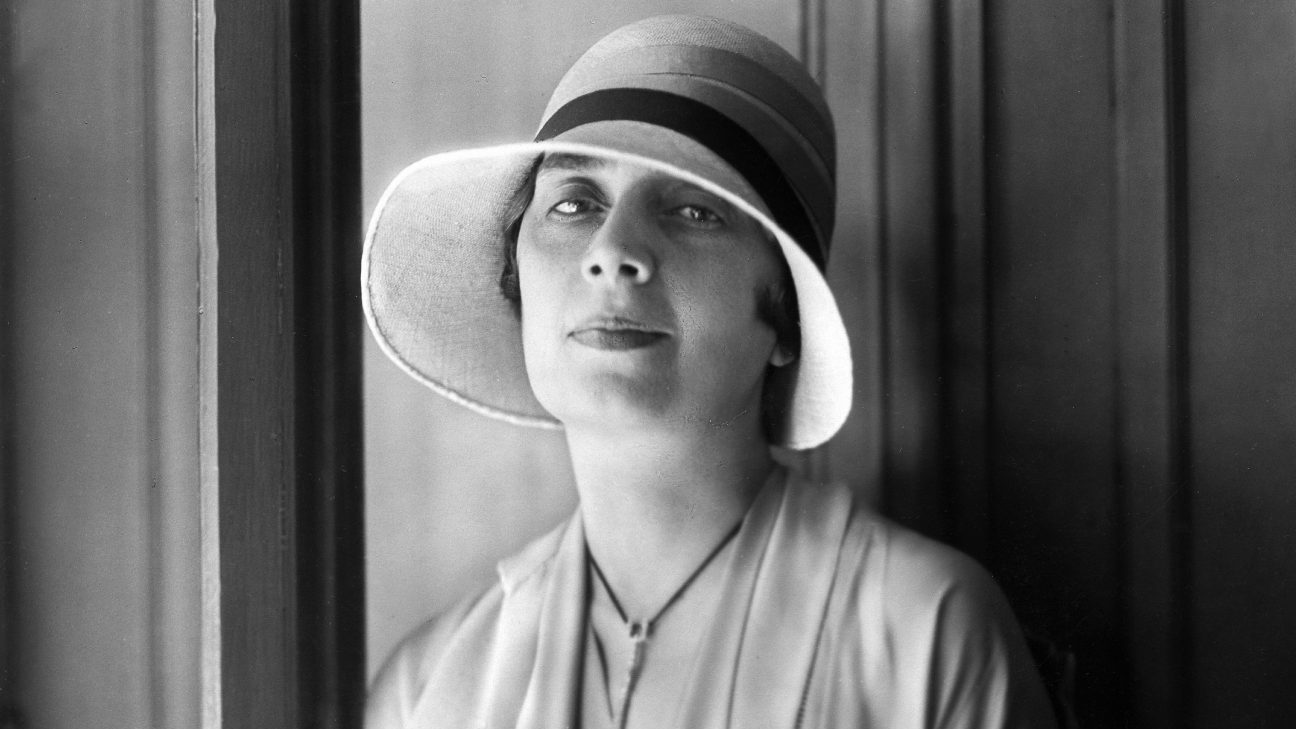It feels outlandish to think that Marthe Bibesco, writer and socialite from the very oldest of old Europe, lived in the same world as the Apollo programme, the Beatles and Watergate. Hers was a world of mutton-chopped dukes, Carpathian castles and the Orient Express, shared with a social circle of the titled and tiaraed, the cultural great and good of the Belle Epoque granted occasional access.
Her love life featured a succession of heads of state – including at least one British prime minister – and if her later years were tainted by cold war fallout she still somehow maintained the trappings of the old European aristocracy to the end.
For most of her female peers the bejewelled opulence of nobility came at a price: a stifled existence in which self-determination and ambition were sacrificed to duty, etiquette and producing the required succession of heirs.
Just when it seemed Marthe Bibesco was becoming enmeshed irretrievably in that web, she broke free, establishing herself as a writer of enough renown to gain admission to the Académie Française and forging an independence rarely seen in the world into which she was born.
In the autumn of 1908 she found herself aboard the Orient Express en route to Paris. She was a regular enough user of the luxury service to regard the journey from Bucharest as a commute, but this time she was heading to the French capital to launch her first book, the travelogue Les Huits Paradis that would establish her as an author of renown and make her the toast of Paris.
The 22-year-old’s first engagement was a ball at the Japanese embassy which she entered on the arm of Robert de Montesquiou, a queer dandy so impressed by his companion he composed and published a sonnet devoted solely to her dress. “Paris was stormed in a single season by Marthe Bibesco,” he wrote in a review of Les huit paradis.
André Gide and Marcel Proust were among those greeting Les huit paradis with enthusiastic admiration, Proust gushing: “You are not only a splendid writer, Princess, but a sculptor of words, a musician, a purveyor of scents, a poet”.
Les huit paradis was the result of her marriage at 16 to a Romanian prince. Born Marta Lucia Lahovary in Bucharest, the daughter of a Romanian princess and a nobleman, her upbringing was rinsed in all the trappings of Mitteleuropan royalty. Her childhood was divided between the family estates in Romania, Paris where her father was a diplomat, and summers in Biarritz.
However, with privilege came complications. Her parents had hoped for a boy and effectively rejected her at birth, leaving her in the care of her nurse who enthralled her with folk tales, and her maternal grandfather who passed on his passion for French culture. Indeed French was her first language, the one in which she wrote, learning Romanian only to communicate with domestic staff at the family seats.
Her parents were keen to marry her off as quickly as possible and betrothal to Prince George Valentin Bibesco was a socially advantageous match. Marthe became infatuated with her fiancé and on her wedding day wrote “I am stepping on to the European stage through the grand door”.
From the very beginning, however, George revealed himself to be a brute and a bully. “Giving a virgin to a man is like handing a Stradivarius to a monkey,” she would write later of a husband who flaunted his many mistresses and showed far more interest in cars and aircraft than his marriage.
This enforced independence proved to be the making of Marthe, however, and she threw herself into writing. Les huit paradis was her account of accompanying George on a diplomatic mission to Persia, a vivid narrative with sparkling anecdotes such as a chance meeting at Yalta with Maxim Gorky, and won her the Prix de l’Académie Française.
Marital independence also facilitated an adventurous love life among the corridors of European power. First there was Crown Prince Wilhelm of Germany who was besotted with Bibesco (“By reigning over him, I reign over an empire”, she wrote in her diary) and drove her through the streets of Berlin in a Mercedes, scattering pedestrians by tooting a horn that played a melody from Wagner.
She enjoyed nights at the Savoy in London with King Alfonso XIII of Spain and Labour PM Ramsay MacDonald also became infatuated, beginning one letter: “You of the fairy swanland, who lives in my dreams”.
“I will never forget his kiss, so young, so strangely chaste, insistent, searching my lips and sealing them with his,” she wrote of their encounters at 10 Downing Street.
In 1915 Bibesco began a long relationship with a British military officer named Christopher Thomson, later Lord Thomson, air minister in the British government, who right up until his death in the 1930 R101 airship disaster never married in the hope that Bibesco would leave her husband for him.
Such an adventurous romantic life lent almost a Zelig-like quality to Bibesco, constantly drawing her towards the centre of events. During the 1920s she stayed with Howard Carter at a dig in Egypt, in 1938 she found herself seated next to Hermann Göring at a banquet in Berlin and in later life developed a profound and lasting connection with Charles de Gaulle, who told her: “you personify Europe for me”.
Of her well-connected love life she wrote: “I am the needle through which pass the filaments and the strands of our disjointed Europe to be threaded together in a necklace”.
Through all this itinerant romancing she never stopped writing, producing a string of literary novels, memoirs and biographies, not to mention filling 65 volumes of a personal diary. One could even argue that writing saved her life: her mother and one of her sisters, living repressed existences without the kind of outlet enjoyed by Marthe, both took their own lives, and when the communists took control of Romania after the second world war and confiscated her assets, Bibesco’s pen became her financial saviour.
Even in financial difficulty, however, she remained gloriously aristocratic. When in 1946 she arrived at the war-ravaged Ritz in Paris effectively as a refugee she immediately upbraided the management over “whiting on the menus, paper napkins on the tables”.
A postwar string of best-selling potboiler romances under the pen name Lucille Ducaux helped to keep her in some semblance of comfort, money that also helped secure the release of her daughter and son-in-law after seven years in Bucharest prison. For all the aristocratic trappings of her world, the simple pen and paper was her saviour.
“Even if I were to lose everything,” she wrote, “I know that my security lies within me.”




